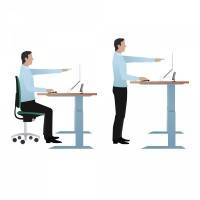May 6, 2015
TfL to occupy first commercial property at International Quarter
 Construction is to begin this summer on the first of a number of office buildings planned for the second stage of the International Quarter, a £2.1 billion mixed-use development in Stratford in East London. Transport for London (TfL) has signed a pre-let with Lend Lease and London and Continental Railways (LCR) to occupy all of the space in the 265,000 sq ft commercial property. An estimated 3,000 TfL workers will relocate to the International Quarter’s new offices and, once completed, an estimated 25,000 people will work at and visit the site each day. The developers claim they are in discussions with other tenants about moving to The International Quarter – which, at a total of four million square feet, will be one of the largest new commercial property developments in the capital.
Construction is to begin this summer on the first of a number of office buildings planned for the second stage of the International Quarter, a £2.1 billion mixed-use development in Stratford in East London. Transport for London (TfL) has signed a pre-let with Lend Lease and London and Continental Railways (LCR) to occupy all of the space in the 265,000 sq ft commercial property. An estimated 3,000 TfL workers will relocate to the International Quarter’s new offices and, once completed, an estimated 25,000 people will work at and visit the site each day. The developers claim they are in discussions with other tenants about moving to The International Quarter – which, at a total of four million square feet, will be one of the largest new commercial property developments in the capital.































May 5, 2015
A responsible approach needed for the design and build of London’s towers 0
by Paul Chilton • Architecture, Comment, Property
(more…)